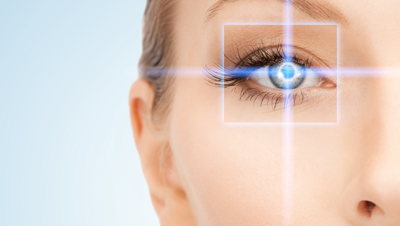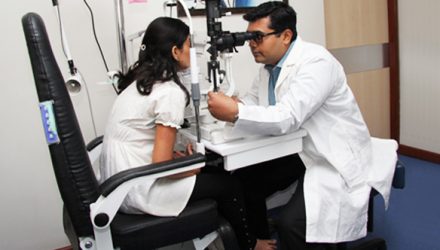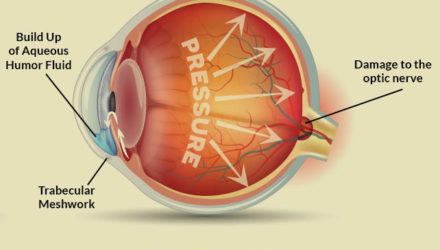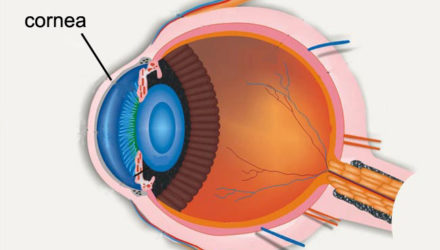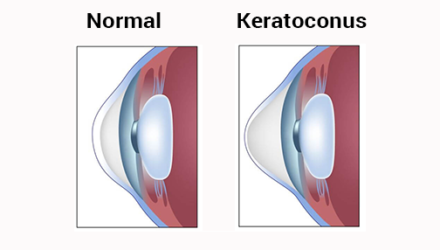Retina Treatment
Evista Eye Care Centre provides treatment for the most common diseases that affect the retina like Diabetic Retinopathy, Macular degeneration, Retinal detachments or tears, Macular holes, Retinopathy of prematurity and Retinitis Pigmentosa.
The Centre’s Retina services are recognized as Centre of Excellence in the treatment of Diabetic Retinopathy in Nagpur, central India.
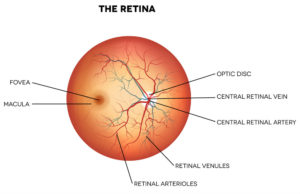
Retina is the innermost photosensitive layer of the eye. It is connected to the brain via the optic nerve
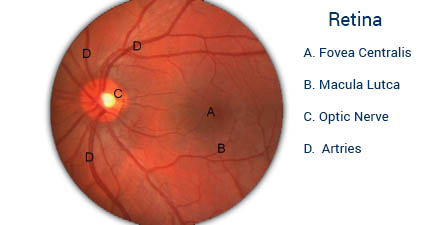
- Macula (Central Retina) - Appreciation of fine details, reading and color vision.
- Peripheral Retina - Functions for night Vision
The Symptoms of Retinal Disease are:
- Sudden or gradual decrease in vision
- Loss of field of vision
- Flashes of light
- Floaters
- Objects appearing distorted (Metamorphopsia)
- Night Blindness
Common Diseases of Retina Includes:
- Diabetes Mellitus
- Hypertension
- Age Related Macular Degeneration
- Myopia
- Infectious Diseases
- Heriditary Degeneration
- Congenital Degeneration
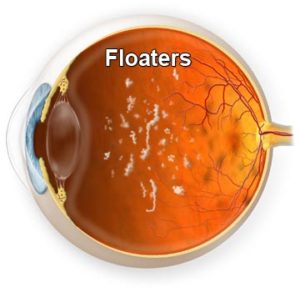
You may sometimes see small specks or clouds moving in your field of vision. They are called floaters.
You can often see them when looking at a plain background, like a blank wall or blue sky.
While these objects look like they are in front of your eye, they are actually floating inside.
What you see are the shadows they cast on the retina. Floaters can have different shapes: little dots, threads, circles, lines, clouds or cobwebs .
The Causes of Floaters are:
 When people reach middle age, the vitreous gel may start to shrink, forming clumps or strands inside the eye.
When people reach middle age, the vitreous gel may start to shrink, forming clumps or strands inside the eye.
Most people have floaters and learn to ignore them; they are usually not noticed until they become numerous or more prominent.
Floaters can become apparent when looking at something bright, such as white paper or a blue sky.
Posterior vitreous detachment (PVD):
The vitreous gel pulls away from the retina, causing a posterior vitreous detachment. It is a common cause of floaters.
PVD is more common for people who:
- Are Shortsighted or Myopes ;
- Have undergone cataract operations;
- Have had YAG laser of the eye;
- Have had inflammation inside the eye / any trauma
- Infectious Diseases
- Heriditary Degeneration
- Congenital Degeneration
Rarely drugs used for some systemic diseases affect the retina
The Causes of Flashes of Lights are:
 When the vitreous gel rubs or pulls on the retina, you may see what look like flashing lights or lightning streaks.
When the vitreous gel rubs or pulls on the retina, you may see what look like flashing lights or lightning streaks.
You may have experienced this same sensation if you have ever been hit in the eye and seen "stars." The flashes of light can appear off and on for several weeks or months.
As we grow older, it is more common to experience flashes. If you notice the sudden appearance of light flashes, you should visit your Retina specialist immediately to see if the retina has any problem.
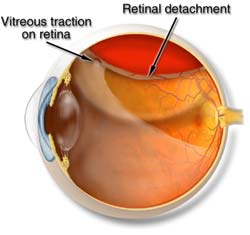 The retina is the light-sensitive layer of tissue that lines the inside of the eye and sends visual messages through the optic nerve to the brain.
The retina is the light-sensitive layer of tissue that lines the inside of the eye and sends visual messages through the optic nerve to the brain.
When the retina detaches, it is lifted or pulled from its normal position. If not promptly treated, retinal detachment can cause permanent vision loss.
In some cases there may be small areas of the retina that are torn. These areas, called retinal tears or retinal breaks, can lead to retinal detachment.
 Symptoms include a sudden or gradual increase in either the number of floaters, which are little “cobwebs” or specks that float about in your field of vision, and/or light flashes in the eye.
Symptoms include a sudden or gradual increase in either the number of floaters, which are little “cobwebs” or specks that float about in your field of vision, and/or light flashes in the eye.Another symptom is the appearance of a curtain over the field of vision. A retinal detachment is a medical emergency.
Anyone experiencing the symptoms of a retinal detachment should see an eye care professional immediately.




